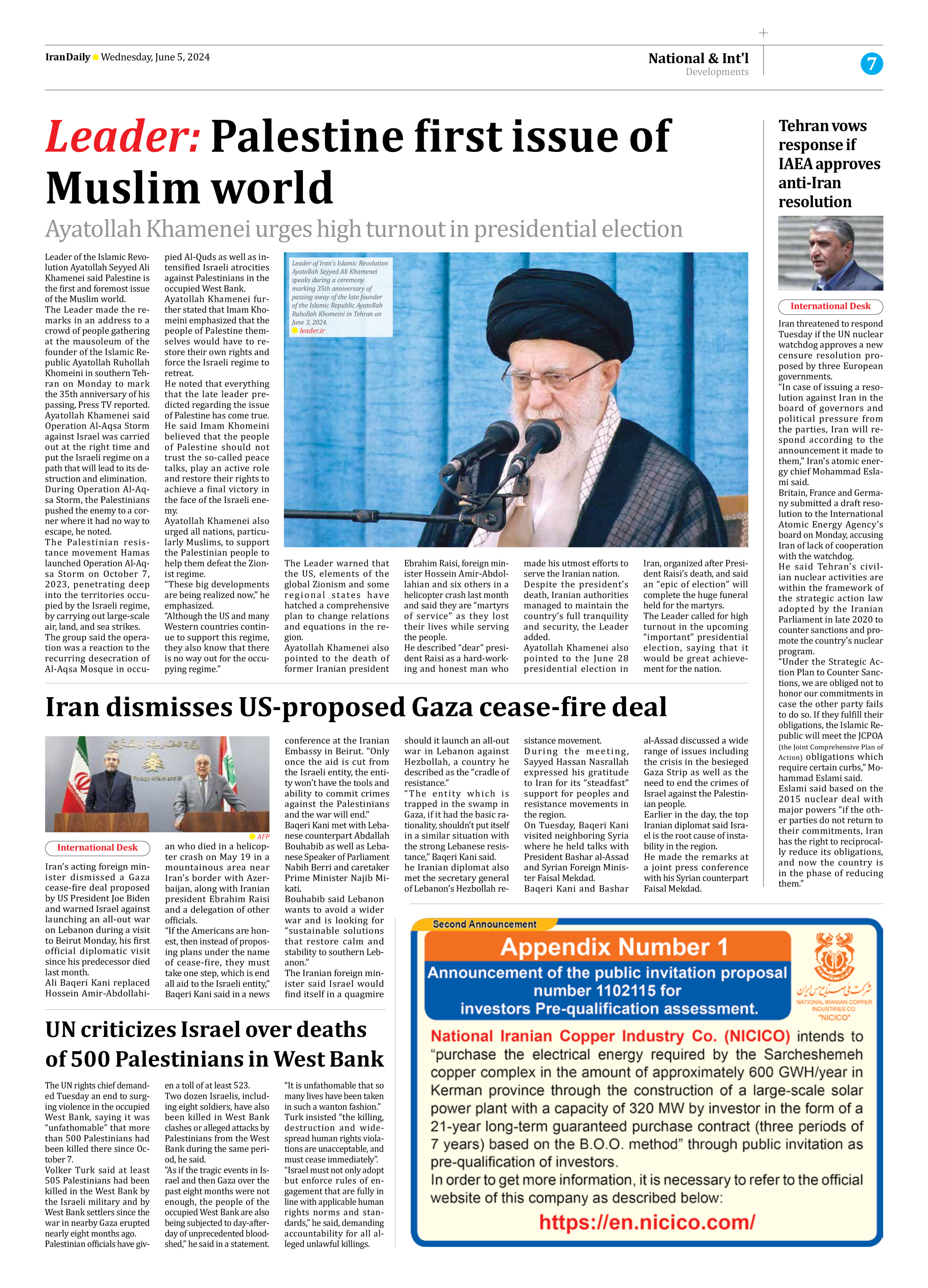
Copy in clipboard...
Iran dismisses US-proposed Gaza cease-fire deal
Ali Baqeri Kani replaced Hossein Amir-Abdollahian who died in a helicopter crash on May 19 in a mountainous area near Iran’s border with Azerbaijan, along with Iranian president Ebrahim Raisi and a delegation of other officials.
“If the Americans are honest, then instead of proposing plans under the name of cease-fire, they must take one step, which is end all aid to the Israeli entity,” Baqeri Kani said in a news conference at the Iranian Embassy in Beirut. “Only once the aid is cut from the Israeli entity, the entity won’t have the tools and ability to commit crimes against the Palestinians and the war will end.”
Baqeri Kani met with Lebanese counterpart Abdallah Bouhabib as well as Lebanese Speaker of Parliament Nabih Berri and caretaker Prime Minister Najib Mikati.
Bouhabib said Lebanon wants to avoid a wider war and is looking for “sustainable solutions that restore calm and stability to southern Lebanon.”
The Iranian foreign minister said Israel would find itself in a quagmire should it launch an all-out war in Lebanon against Hezbollah, a country he described as the “cradle of resistance.”
“The entity which is trapped in the swamp in Gaza, if it had the basic rationality, shouldn’t put itself in a similar situation with the strong Lebanese resistance,” Baqeri Kani said.
he Iranian diplomat also met the secretary general of Lebanon’s Hezbollah resistance movement.
During the meeting, Sayyed Hassan Nasrallah expressed his gratitude to Iran for its “steadfast” support for peoples and resistance movements in the region.
On Tuesday, Baqeri Kani visited neighboring Syria where he held talks with President Bashar al-Assad and Syrian Foreign Minister Faisal Mekdad.
Baqeri Kani and Bashar al-Assad discussed a wide range of issues including the crisis in the besieged Gaza Strip as well as the need to end the crimes of Israel against the Palestinian people.
Earlier in the day, the top Iranian diplomat said Israel is the root cause of instability in the region.
He made the remarks at a joint press conference with his Syrian counterpart Faisal Mekdad.







